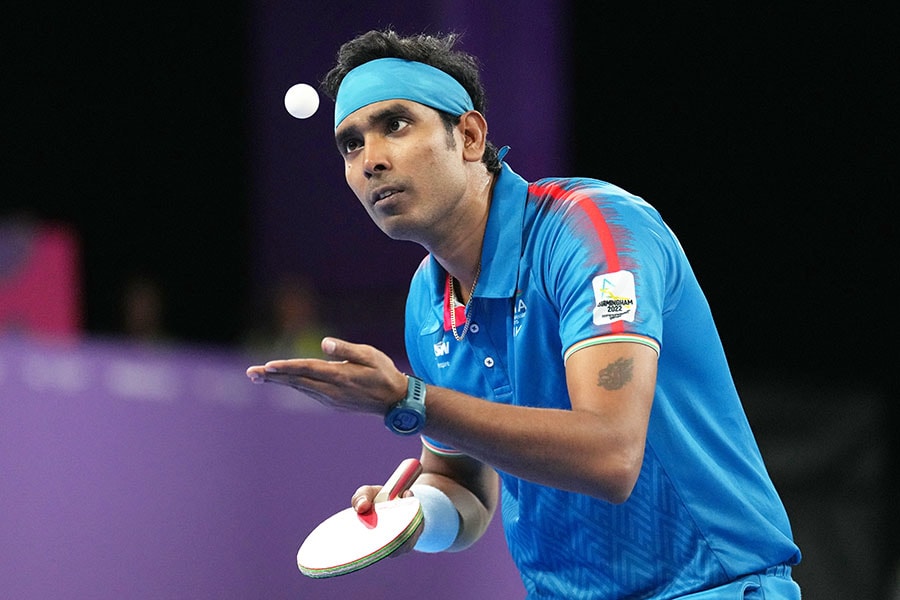
The greater you are, the more humble you should be: Sharath Kamal
Indian table tennis superstar Sharath Kamal on the secret to his longevity and working hard
 India's Sharath Kamal Achanta during the Men's Singles Gold Medal Match at The NEC on day eleven of the 2022 Commonwealth Games in Birmingham. Image: Tim Goode/PA Images via Getty Images
India's Sharath Kamal Achanta during the Men's Singles Gold Medal Match at The NEC on day eleven of the 2022 Commonwealth Games in Birmingham. Image: Tim Goode/PA Images via Getty Images
At 39, when most athletes consider hanging up their boots, table tennis player Sharath Kamal won the national championships. A year later, he won four medals in the 2022 Commonwealth Games, including three golds. And he says he's not done yet. While he stopped short of medalling at the recent Asian Games in China's Hangzhou, Kamal has settled on the bird's eye: The 2024 Paris Olympics.
In this interview with Forbes India, he explains how his longevity has been nurtured by discipline and hard work since his youth and how he keeps himself motivated with short-term goals. Edited excerpts:
'When I chose sport, I decided to give it all'
I started playing table tennis (TT) at the age of four, and initially, I liked it because it enabled me to go to the club and hang out with kids. By the time I was 12/13, my passion for the game grew stronger, so much so that I used to wake my dad up at 6 in the morning and ask him to take me to the club. From there, the most important turning point in my career was during my 10th standard, when I had to decide whether to go for science and engineering—typical of a South Indian family—or take up sports and commerce. That's when my parents let me decide for myself, and I decided to go professional in sport. That decision changed how I looked at life—I became more serious about the sport and started working harder.








